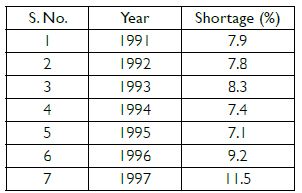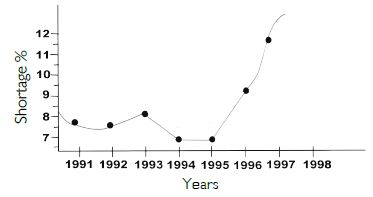Question 1:
What are the advantages of CNG and LPG as fuels?
Answer:
The advantages of using LPG and CNG as fuels are:
(a) LPG and CNG have high calorific value.
(b) LPG burns with a smokeless flame and does not cause pollution. CNG also does not cause pollution. They do not produce any poisonous gases on burning.
(c) They are easy to handle and convenient to store.
(d) They undergo complete combustion.
(e) They are both clean and environment friendly fuels.
Question 2:
Name the petroleum product used for surfacing of roads.
Answer:
Bitumen is the petroleum product used for surfacing roads.
Question 3:
Describe how coal is formed from dead vegetation. What is this process called?
Answer:
About 300 million years ago, forests got buried under the soil. They were compressed by soil deposits and their temperature raised as they sank deeper and deeper. Due to the high temperature and pressure, gradually the dead vegetation changed into coal and this process is known as carbonisation.
Question 4:
Fossil fuels are _________, _________ and _________.
Answer:
Coal, petroleum, natural gas
Question 5:
Process of separation of different constituents from petroleum is called _________
Answer:
Refining
Question 6:
Least polluting fuel for vehicles is _________.
Answer:
CNG (Compressed Natural Gas
Question 7:
Fossil fuels can be made in the laboratory.
- TRUE
- FALSE
Answer:
FALSE
Question 8:
CNG is more polluting fuel than petrol.
- TRUE
- FALSE
Answer:
FALSE
Question 9:
Coke is almost a pure form of carbon.
- TRUE
- FALSE
Answer:
TRUE
Question 10:
Coal tar is a mixture of various substances.
- TRUE
- FALSE
Answer:
TRUE
Question 11:
Kerosene is not a fossil fuel.
- TRUE
- FALSE
Answer:
FALSE
Question 12:
Explain why fossil fuels are exhaustible natural resources.
Answer:
Fossil fuels are formed from the remains of dead plants and animals. It takes million of years for this process to take place. The known reserves of these fuels are limited and hence, these are exhaustible fuels.
Question 13:
Describe characteristics and uses of coke.
Answer:
Coke is a pure form of carbon. It is tough, porous and black. Coke is used to manufacture artificial graphite, which is used in the manufacturing of calcium carbide, required for manufacturing acetylene gas. Acetylene gas is the basic raw material for manufacturing acetic acid and PVC. Acetylene is used for manufacturing water gas and producer gas, which are used as fuel. It is used to extract metals from their ores. Since coke does not produce any smoke, hence it is used as a household fuel.
Question 14:
Explain the process of formation of petroleum.
Answer:
Petroleum is formed from the bacterial decomposition of the remains of animals and plants, which got buried under the sea millions of years ago. When these organisms died, they sank to the bottom of the seas and oceans and got covered by sand and clay. Over a period of millions of years, in the absence of air, these organisms got converted into petroleum due to excessive heat and pressure. The hydrocarbons formed were trapped by impervious rocks forming an oil trap. Natural gas is usually found along with petroleum.
Question 15:
The following table shows the total power shortage in India from 1991–1997. Show the data in the form of a graph. Plot shortage percentage for the years on the Y-axis and the year on the X-axis.


